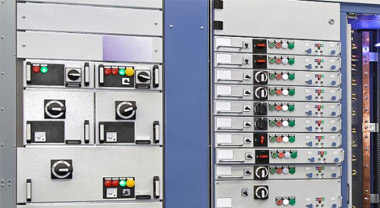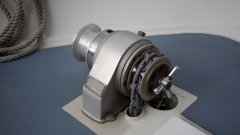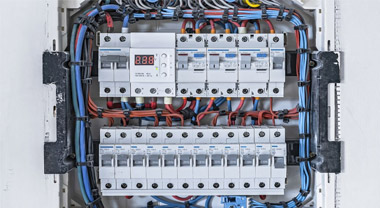What is the difference between fuse and circuit breaker?
A fuse is a type of overcurrent protection device that contains a metal wire or strip that melts when too much current flows through it, thereby interrupting the circuit and protecting the downstream equipment from damage. A circuit breaker, on the other hand, is a switch that automatically interrupts the electrical flow in a circuit when it detects an overload or a short circuit.
Fuse
Fuses are an older technology, traditionally used in older homes and electrical systems. They are single-use items that need to be replaced once they 'blow' or 'burn out' due to an overcurrent or short circuit situation. Fuses come in different types and ratings, designed to work with specific types of equipment and circuits.
Circuit Breaker
Circuit breakers are more modern and sophisticated than fuses. Unlike a fuse, a circuit breaker can be reset after it trips due to an overload or short circuit. This makes them more convenient and potentially more cost-effective over time, as you don't need to replace them after a single use.
Working Principle
Although both fuses and circuit breakers are designed to protect electrical circuits by interrupting the flow of electricity when a fault is detected, they work based on different principles.
Working Principle of a Fuse
A fuse contains a piece of wire designed to melt and separate when the flow of current exceeds the fuse's rated amperage. The melting of this wire creates an open circuit, which stops the flow of electricity, thereby preventing potential fire hazards and damage to appliances and equipment in the circuit.
Working Principle of a Circuit Breaker
A circuit breaker works by detecting a fault condition and disrupting the continuity of the electrical flow. When the current exceeds a predetermined limit, the circuit breaker's switch automatically moves to the "off" position, interrupting the current flow. Once the fault condition has been resolved, the switch can be manually reset to the "on" position to restore the electrical flow.
Cost Difference
The cost of fuses and circuit breakers can vary widely depending on their type, rating, and the specific application for which they are intended. As a general rule, though, circuit breakers are usually more expensive than fuses due to their ability to be reset and reused.
Durability and Reliability
While both fuses and circuit breakers are reliable methods of overcurrent protection, they each have their pros and cons in terms of durability and reliability.
Durability and Reliability of Fuses
Fuses are generally considered to be very reliable, as they seldom fail to function when a fault condition occurs. However, because they are single-use devices, they need to be replaced every time they 'blow.' This makes them less durable and potentially less convenient than circuit breakers.
Durability and Reliability of Circuit Breakers
Circuit breakers are typically more durable than fuses because they can be reset and reused after tripping. However, they can sometimes fail to trip in response to a fault condition, particularly if they are not properly maintained.
Applications
Fuses and circuit breakers each have specific applications where they are particularly well-suited. Understanding these applications can help you make an informed decision when choosing between a fuse and a circuit breaker for a particular purpose.
Applications of Fuses
Fuses are typically used in low-voltage applications, such as home appliances and electronics. They are also commonly used in older homes and buildings where the electrical system has not been updated.
Applications of Circuit Breakers
Circuit breakers are generally used in higher-voltage applications and are the standard for modern home and commercial building electrical systems. They are also commonly used in industrial settings where there is a high demand for electricity and the potential for overloads and short circuits is greater.
Conclusion
While both fuses and circuit breakers play vital roles in maintaining electrical safety, they differ significantly in terms of their operation, cost, durability, and specific applications. Fuses are a cost-effective, reliable solution for overcurrent protection, particularly in low-voltage applications. However, they must be replaced after each use. Circuit breakers, on the other hand, are more modern and durable, capable of being reset after a fault condition. They are more expensive but can be more convenient and cost-effective over time.




